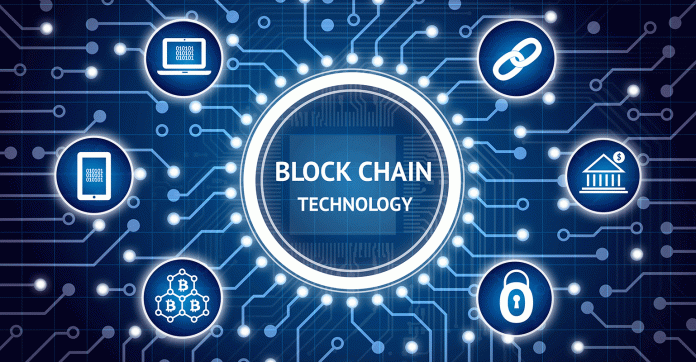The explosion in popularity of Bitcoin, a blockchain-based cryptocurrency, brought Blockchain technology to the forefront. The origins of Blockchain technology date back to the late 80s, when Merkle Tree was created.
However, W. Scott Stornetta and Stuart Haber were the first to use it. Haber and Stornetta imagined a cryptographically secure system with blocks linked together in a chain.
This would ensure everyone keeps the timestamps of documents.
The whitepaper by Satoshi Nakamoto, Bitcoin: Peer–to–Peer Electronic Money System, went viral.
The Bitcoin phenomenon became a soft barrier to blockchain technology. Blockchain app development company weren’t popular until recently beyond financial services and digital currencies. Blockchain technology is far from mature today, but its use is expanding across many sectors.
Healthcare
Cyber-attacks are most likely to target the healthcare sector. Medical institutes must protect their data to ensure confidentiality and safety.
Secure data sharing between hospitals and clinics can improve healthcare services and increase the effectiveness of treatment with an accurate diagnosis. Blockchain allows patients, clinics, and other entities to collaborate and give access to the network without exposing critical data.
Blockchain-driven healthcare solutions can also significantly improve patient care, advance medical discoveries, secure patient data management, and track medical supplies and patient collections.
Data storage
To increase security and integrity, blockchain technology can be used in data storage solutions. It is easier to hack into data stored in a distributed manner than to wipe out the entire network.
One point might be all that is needed for a centralized storage provider. Because access is not tied to one company’s activities, this allows for greater data accessibility. Blockchain data storage may be more affordable in certain cases.
Finance and banking
Blockchain has many benefits for the banking and finance sector. It is transparent and secure and can improve record-keeping. It is an excellent solution for banking purposes, such as Anti-Money Laundering, Client Onboarding, or Fraud Prevention.
Monitoring is the apparent application of Blockchain. It provides transparency and greater traceability and allows for faster analysis due to its digital nature.
Sharing a distributed ledger with regulators is also an option.
This would eliminate the need for reports and help with identifying risk faster. In addition, Blockchain will enable automation, reducing costs and speeding up decision-making.
Law Enforcement
Blockchain-based technologies could be beneficial to law enforcement and security professionals to verify that the video recordings used as evidence are authentic. Blockchain-based methods can be used in non-repudiable ways to sign and stamp video evidence.
This protects it against being altered, denied, or faked by anyone using tools such as deep fake software, which is widely available online.
Cybersecurity
Blockchain is a decentralized system and is, therefore, ideal for high-security environments. All information on a blockchain network or bitcoin is encrypted and verified using cryptographic algorithms. It eliminates the possibility of a single entry point to a large-scale attack. Peer-to-peer connections make it easy to identify malicious data attacks using Blockchain.
Data cannot be altered or tampered. Blockchain removes the need to have a central authority. It provides a transparent and secure way to record transactions without disclosing private information.
Guardtime is an example of a company that successfully uses cybersecurity in this manner. We expect many other companies to follow Guardtime’s lead and disrupt the industry.
Media
Blockchain technology can control piracy and increase content security. In addition, you can reduce the cost of the content exchange between developers, publishers, and end-users by eliminating intermediaries and giving centralized access to allies.
Secured and centralized access to content can help increase revenue through real-time monetization models.
Media companies can thus save time and avoid having to appeal to multiple vendors. However, Blockchain in media can be challenging to implement due to its high cost and need for more standardization.
Gaming
The global gaming market could reach US$159.3 trillion by the end of 2023. Gaming became a multi-billion-dollar industry due to its winners, cash rewards, and competitions.
Blockchain technology can generate revenue for online gamers by selling their in-game amenities. As a result, online gamers can purchase in-game components and services to improve their gaming experience.
In addition, Blockchain allows gamers to collaborate and make secure transactions according to their needs.
Just Visit for App development company Kuwait
Food Safety
The food industry focuses on strict compliance and high quality. Rotten foods and beverages can cause serious health problems and even death. Therefore, packaged goods companies should adhere to all regulatory requirements and standards.
Manufacturers and retailers can avoid these problems with Blockchain. It allows vendors to track their entire supply chain and identify contamination cases. As a result, it can help ensure food product quality.
Simply adding QR codes to products can create the perfect blockchain-driven solution. These QR codes allow you to track the entire product journey, from manufacturer to retailer.
Government benefits
A blockchain can also store digital identities to administer government benefits like Medicare, Social Security, or welfare programs. Blockchain technology can lower fraud and operational costs. Blockchain digital disbursement allows beneficiaries to get funds quicker.
You can know more about blockchain from any mobile app development company and investing in blockchain will give you promising results in your product and business.



